Introduction
As a consultant, juggling a variety of documents is an everyday aspect of running your business. From creating quotes to keeping tabs on expenses, managing documents effectively is vital for ensuring your consulting venture thrives.
In this blog post, we’ll delve into the significance of essential documents for consultants, their purposes, and how adept handling of these documents can simplify your workflow and propel your business forward.
Quotes
A quote is a detailed proposal that outlines the scope of a project, estimated costs, and timelines. It serves as the foundation for your business relationship with a client. Crafting a professional and accurate quote is essential to set expectations, build trust, and secure contracts. Ensure that your quotes are clear, comprehensive, and tailored to each client’s specific needs.
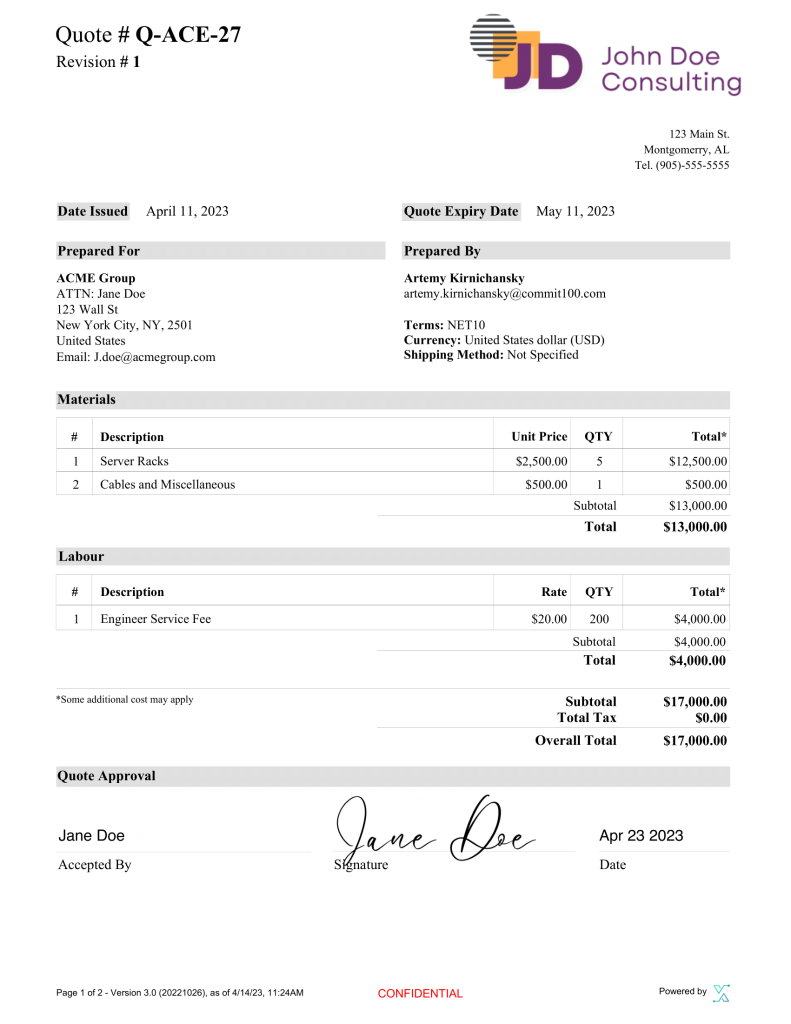
Key Elements of a Quote
- Project description and scope
- Itemized list of services or tasks
- Estimated costs and pricing strategy
- Terms and conditions
- Payment terms and schedule
Expense Report
Expense reports are crucial for tracking project-related expenditures, such as travel, meals, and supplies. Accurate expense reporting helps you monitor project budgets, evaluate the profitability of each project, and ensure tax compliance. Implement a standardized expense reporting system to maintain transparency and consistency across your consulting practice.
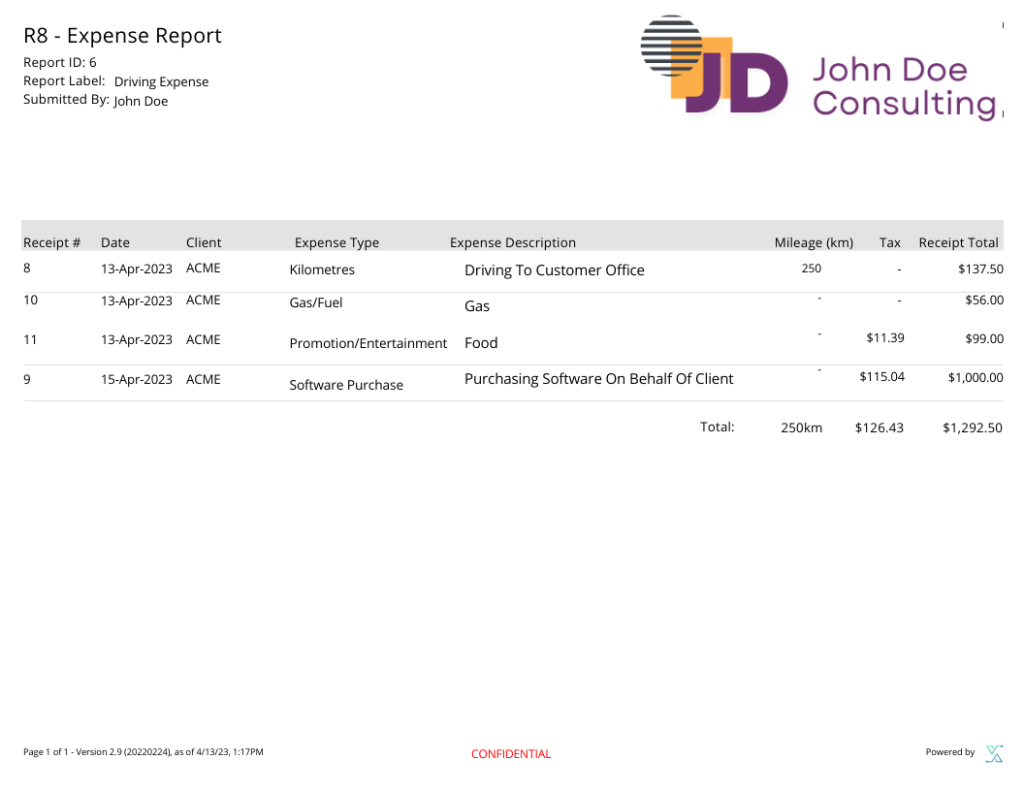
Key elements of an Expense Report
- Date of expense
- Expense category (e.g., travel, meals, supplies)
- Description of expense
- Amount spent
- Receipts or supporting documents
- Project or client associated with the expense
Sales Order
A sales order is a document that confirms the details of a client’s purchase and authorizes the commencement of a project. It includes information about the services to be provided, pricing, and terms of payment. Sales orders serve as an essential reference for both the consultant and client, ensuring that both parties are aligned on project expectations and deliverables.
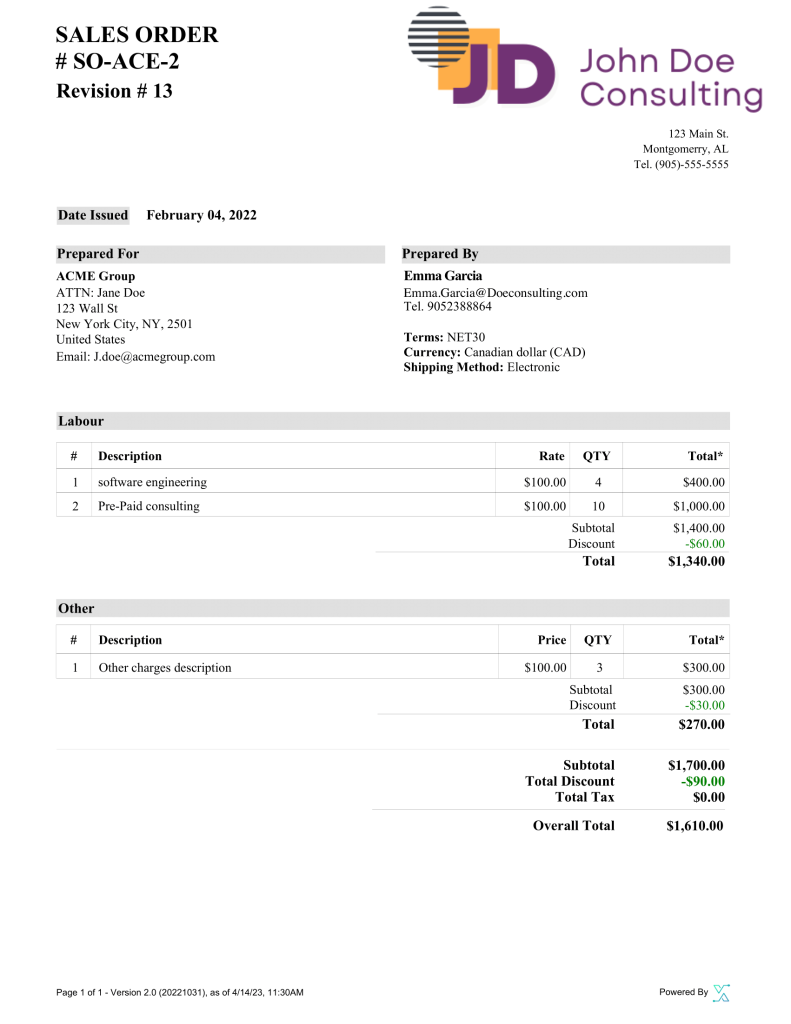
Key elements of a Sales Order
- Client information (name, contact details, billing address)
- Sales order number and date
- List of services to be provided
- Pricing and payment terms
Purchase Order
Purchase orders are formal requests for goods or services from vendors or subcontractors. They are essential for managing project-related purchases and ensuring that you receive the correct items at the agreed-upon prices. Proper management of purchase orders can help you avoid overspending, maintain accurate financial records, and streamline your procurement process.
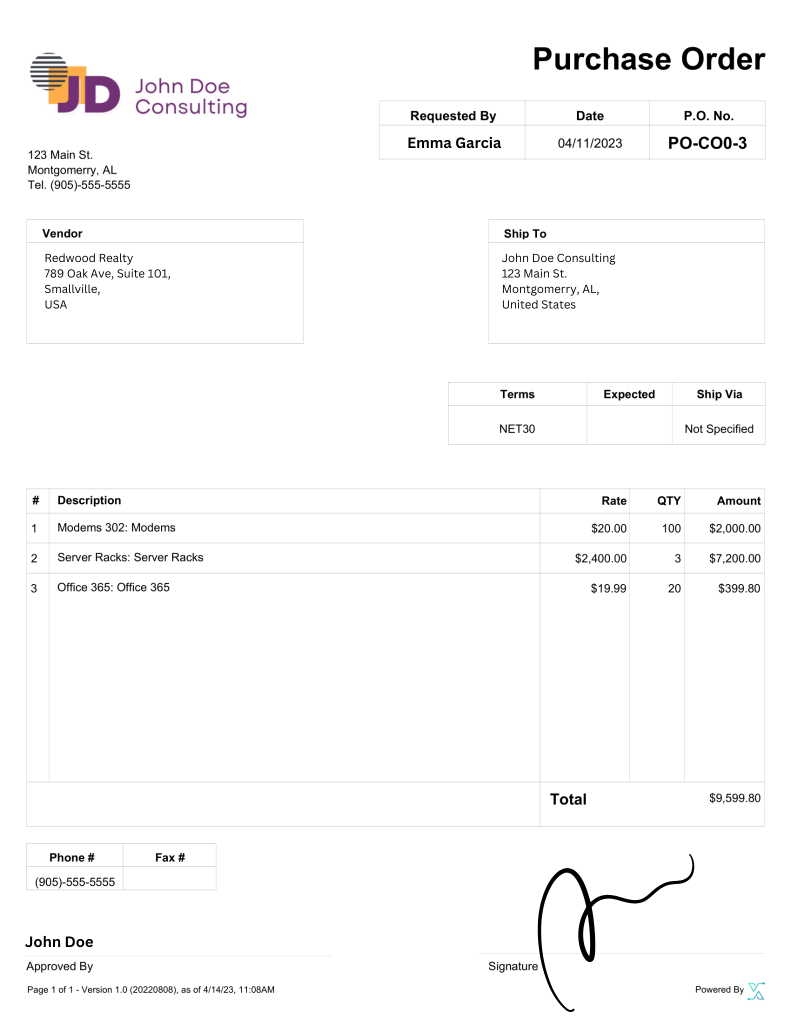
Key Elements of a Purchase Order
- Vendor information (name, contact details)
- Purchase order number and date
- Description of goods or services
- Quantity and pricing
- Delivery or service dates
Invoice
Invoices are documents that detail the services provided, associated costs, and payment terms for a completed project. Timely and accurate invoicing is critical for maintaining healthy cash flow and building a strong reputation for professionalism. Use a standardized invoicing system to ensure that your invoices are clear, detailed, and easy for your clients to understand.
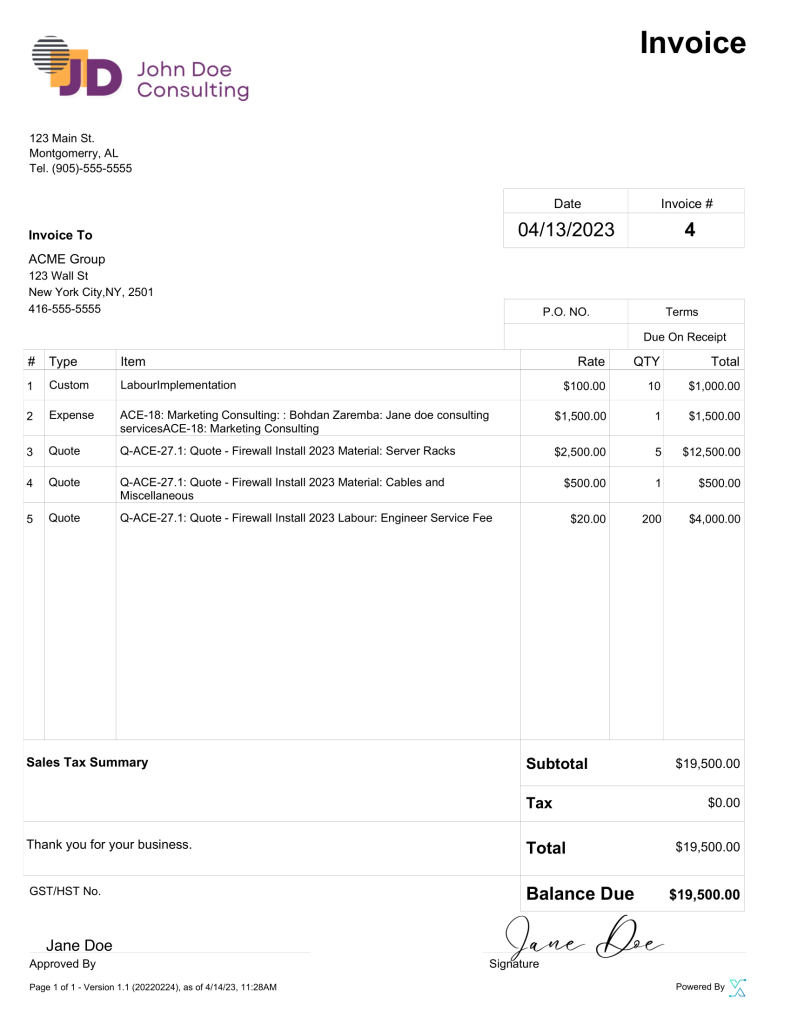
Key elements of a Purchase Order
- Invoice number and date
- Client information (name, contact details, billing address)
- List of services provided and associated costs
- Subtotal, taxes, and total amount due
- Payment terms and due date
Weekly Timesheet Report
A weekly timesheet report is an essential tool for tracking billable hours and project progress. It provides a clear record of the time spent on specific tasks and projects, ensuring that you can accurately invoice clients and monitor the efficiency of your workflow. Implement a system for logging and reviewing billable hours to maximize productivity and maintain transparency with your clients.
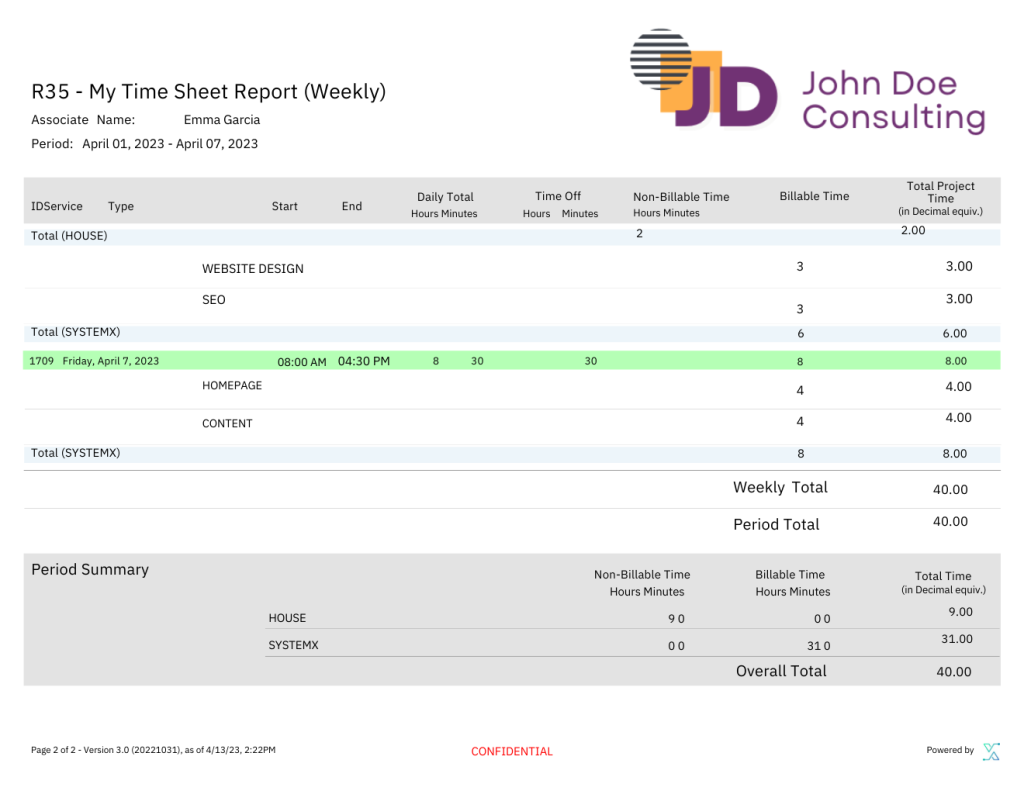
Key Elements of a Timesheet Report
- Employee or consultant name
- Project or client associated with the hours
- Dates and hours worked
- Task descriptions
- Billable and non-billable hours
- Total hours per week
Company Directory
A company directory is a comprehensive list of your team members, their contact information, and their roles within your consulting practice. It serves as a valuable reference tool for fostering collaboration, communication, and accountability among your team. Keep your company directory up to date and easily accessible to ensure smooth operations and efficient teamwork.
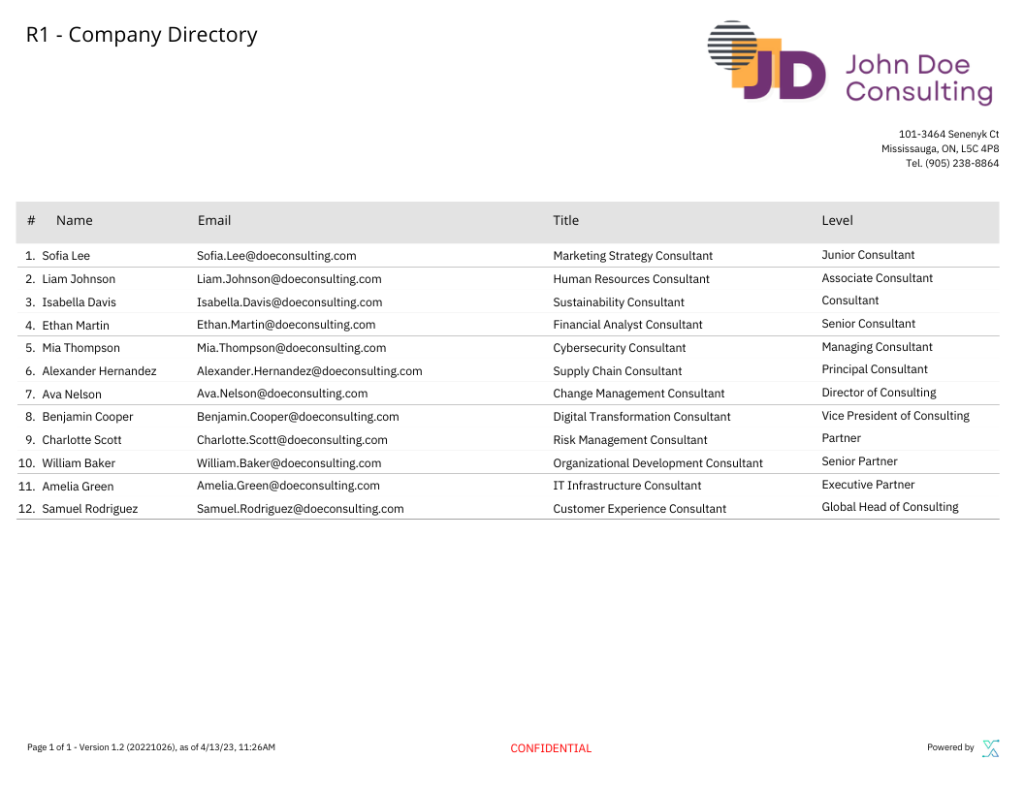
Key elements of a company directory
- Employee names and titles
- Contact information (phone, email)
- Department or team
- Roles and responsibilities
- Employee photograph (optional)
- Employee start date (optional)
Client Directory
A client directory is a database of your clients’ contact information, project details, and communication history. Maintaining an organized and updated client directory allows you to nurture relationships, provide personalized service, and identify opportunities for additional projects or referrals. Invest in a client relationship management (CRM) system to streamline your client directory management and enhance your consulting practice.
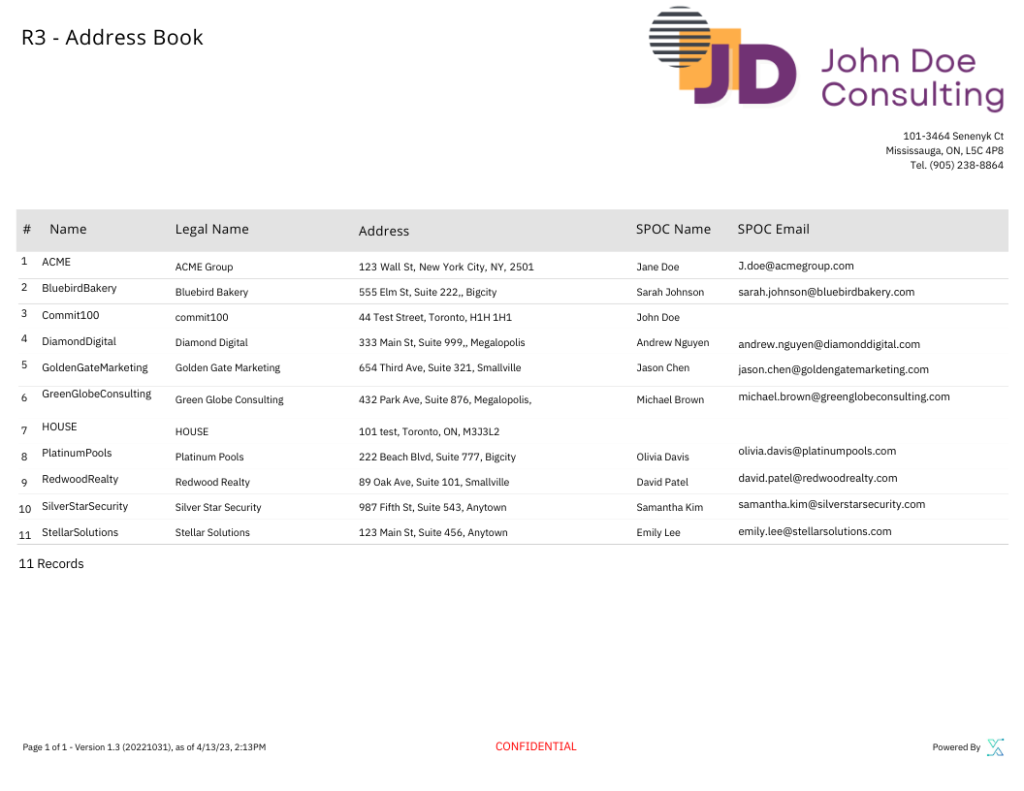
Key elements of a client directory
- Client name and company
- Client contact information (phone, email, address)
- Project details and history
- Communication records
Conclusion
Effective document management is essential for a successful consulting business. By understanding the importance of key documents and implementing efficient systems for managing them, you can streamline your workflow, ensure accuracy, and focus on delivering exceptional value to your clients. Stay organized, stay informed, and watch your consulting business thrive. To further enhance your document management capabilities, consider utilizing SystemX, a powerful software solution that can generate and manage all the essential documents mentioned above. Give SystemX a try and experience the benefits of seamless document management tailored specifically for consultants.

